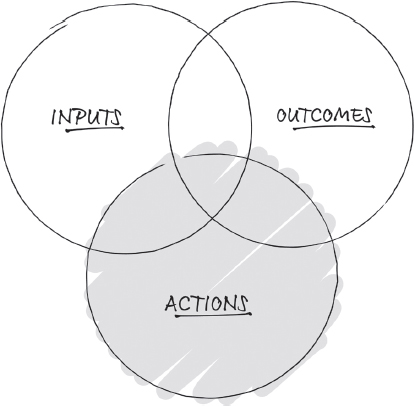PART I CENTRALISE YOUR ACTIONS

Busyness is a mindset. Or to paraphrase Peter Cook, author of The New Rules of Management, busyness is an emotional response to our schedule. We feel busy when our schedule or task list is full. When someone asks us how we are we respond instinctively: ‘Busy’.
But what does this really mean? Are we not always busy with something? Yes, of course we will have pressure points when major deadlines loom, or when a project is in full swing, but these particularly busy times seem to have become the norm. There are fewer and fewer gaps between our busy periods, which for many have joined up into one never-ending busy period. The only thing that changes is the content of this week's crises, deliverables or urgent deadlines.
This sense of busyness is fuelled by the urgency that pervades our modern workplace, and often this is a self-perpetuating problem. The systems and tools we use to organise our actions make us feel busier than we actually are. I believe systems that may have worked in a less frantic workplace 20 years ago are now a part of the problem.
Get Smart Work now with the O’Reilly learning platform.
O’Reilly members experience books, live events, courses curated by job role, and more from O’Reilly and nearly 200 top publishers.

